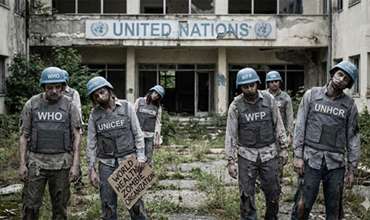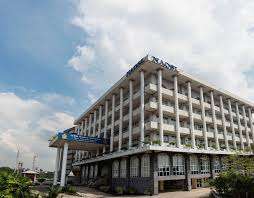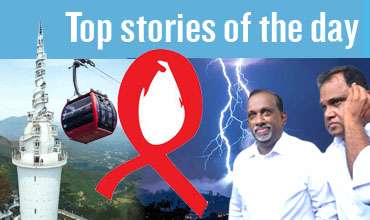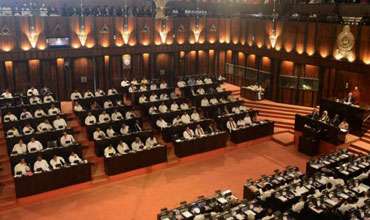Glory amidst misery- Sri Lankan robber barons
By Dr. Y Ratnayake.
This article succinctly examines the driving motives of business tycoons in Sri Lanka in contrast to their counterparts in the West and makes an effort to bring under the spotlight how the arbitrary pricing practices of business organizations and the high-profit margins maintained by them accelerate the spiraling inflation in the current economic context in Sri Lanka.
The article also elaborates on how the sacrosanct values enshrined in the citadels of Western political philosophy have been reduced to meaningless verbiage among the academia and the politicos.
The term Robber Baron refers to business tycoons, mainly in the USA. They accumulated their vast asset base at the beginning of the latter half of the 20th century using dubious, unethical, and scrupulous business strategies, with gross disrespect to social ethics, business norms, and transparent practices. Rockefeller, Carnage, Duke, Morgan, Cornelius, Russell Sage, etc. are within the first ten names on the list due to their demonstrated capability to amass an enormous amount of wealth by capitulating to war, poverty, civil unrest, and other human calamities, proving the dictum that man is homo economics, as Smith stated centuries ago.
The well-articulated and cherished open economic system, the DNA of Western political economy, has been reduced to a cockamamie concept of academic interests since, in practice, multinational corporations manipulated the circumstances to their level best to ensure that small businesses and upcoming enterprises are destabilized at their offing to achieve dominance in the product and service markets. Such anti-competition practices are not only dominant in different periods of economic growth in the West contrary to the espoused value system of the Western democracies but also justified, without any hesitation, as a general strategy that must be applied ruthlessly for achieving exclusive success of business.
As stated by Rockefeller of Standard Oil, “The growth of large business is merely a survival of the fittest…The American beauty rose can be produced in the splendor and fragrance which bring cheer to the beholder only by sacrificing the early buds which grow up around it. This is not an evil tendency in business. It is merely the working-out of a law of nature and law of God.”
Sri Lanka witnesses an emerging generation of robber barons in the corporate sector of the economy whose approach to business management appears to be a perfect blueprint of the ruthless strategies employed by their counterparts in the West for converting human misery into a pot of gold.
As statistical evidence indicates, the corporate sector of Sri Lanka recorded an above average profit level, showing its ability to convert the human sufferings into a pot of gold, during the period the country was tormented with the covid-19 pandemic. This undoubtedly demonstrates that the Sri Lankan robber barons are not at all inferior to their counterparts in the northern hemisphere and very often outperform their brothers in the West in such a manner that makes the dead barons in the West twist in their graves in shame!
Rehearsal on the Law of the Jungle:
The Sri Lankan brand of bobber barons represents a crosssection of multiple business sectors encompassing trading of rice, egg business, meat production, tea industry, consumer herbal supplements, electrical items and so forth whose modus operandi is based on the creation of an artificial shortages in the market for a brief period and thereafter resume the supply of the same product at exorbitant prices that are not only unreasonable but also beyond the affordability of the the gullible customers. This pattern of behaviour has been continuing unabated on a perpetual basis despite the assurances given by the politicians of different hues to the effect that unbridled freedom enjoyed by the trade mafia would be reined forthwith.
For instance, a herbal product/tablet manufacturer increased his markup price to Rs. 1000 from Rs 470 after a manipulated shortage in the market for a few days. Another corporate citizen in the tea industry mercilessly increased its selling price of a green tea pack from Rs 200 to Rs 700 using the same strategy, without any concern for its loyal customers. The popular cardiac attack preventive medicine, Cardiprin, mainly used by senior citizens, went up in price from Rs. 275 a card to Rs. 325 after creating a shortage only for three days! A popular brand of tooth paste increased the price of its medium sized toothpaste tube to Rs.1000 from Rs 700.00.
Is there any difference, in terms of ruthless exploitation of human sufferings and social upheaval, between the Sri Lankan robber barons and their counterparts in the West? It appears that both are conjoined twins with only the difference of complexion in their skin! The above examples amply demonstrate that the formal business organizations in Sri Lanka enjoy an unbridled freedom, like Robber Barons, and follow the rule of the jungle assuming that producers are sovereign and consumers are a captive group that can be exploited at their will, strangely under the vigilant eyes of customer protection organizations that are proliferated in all comestible manufacturing sectors in the country. Although the Central Bank announces in its press briefs, substantial decreases of cost of living, the ground reality appears to be the right opposite of declines, mainly in the manufacturing sector, as prices of daily needs have indicated continuous upward swing without showing any sign of ebbing in the commodity market.
Carte Blanche Granted to Corporate Sector
In particular, egg and rice markets are under the total domination of a handful of traders who have been operating in tacit agreement with one another, sort of an undeclared cartel, to maintain prices of their merchandise at their dictate.
As regards the egg market, consumers are fed up with the authoritative behavior and attitudes of egg producers and retailers towards the buyers since the merchants’ interaction with the customers is often akin to the renaissance of viceroys who looked down on the plebeians with a high degree of arrogance under the British rule that existed a few decades ago in Sri Lanka.
Nowadays, eggs are sold by retailers at prices ranging from Rs. 45 and Rs. 50 each thanks to the decision made by the government to import eggs from India and distribute them through CWC outlets.
There is recorded evidence in the news media that the egg producers’ union made public proclamations stating that their cost price alone stood at Rs. 55 an egg and therefore reducing the price below Rs. 50 would result in the winding up of the business due to subsequent losses. If so, when the CWC commenced the distribution of imported eggs at a lower price, the local producers’ cost of production miraculously declined due to their mana, allowing them to sell eggs at prices below Rs. 50. Oxymoron logic! If one peruses social and public media, one can find reams of articles written and opinions expressed criticizing the oligopolistic characteristics purposely implanted by the traders in multiple commodity markets, but all the publicity given to the issues is in vain since the authorities that are supposed to be providing ministration act like a headless chicken or carte blanche is granted by the authorities to the rowdy industrialists to exploit in human misery.
Profit Stimulated Inflation:
According to Bloomberg, the principal problem faced by people due to the economic crisis is the rising prices while the income of the fixed salary earners and the pensioners remains unchanged. As a result, the poverty rate has doubled from 2021 from thirteen percent to twenty-five percent, as estimated by the World Bank.
However, the economic crunch appears to be producing devastating impacts only on the low and the lower middle-income brackets of society while higher echelons in the income pyramid are hardly affected by the crisis as their hedonic expenditure pattern shows all the signs of binge and their immunity to the low-income earners’ economic woes.
Government tax increases, rise in the cost of material and escalating energy prices that determine the cost of production in the manufacturing sector are en-bloc added to the markup prices together with a high profit margin and transferred to the hapless buyers, as manufacturers hardly absorb a large share of the cost increase due to the inelastic nature of consumer demand for their products.
Based on the isolated incidents observed by the author, using the web browser, in the manufacturing sectors of electrical, food supplements, power tools etc., thirty to fifty percent in the markup prices of their respective products consists of the profit margin added to the final selling prices by the industrialists. The process does not end here since the price spiral keeps on gathering momentum as the retailers add their profit margin, perhaps contrary to the manufacturer’s advice, to the producer’s markup that results in the accumulated selling price of the product containing nearly fifty percent of what the buyer disburses.
Inflation as an economic phenomenon is experienced worldwide but global inflation in 2022 averaged only 10.1 percent while Sri Lanka’s inflation was 57.2 percent in the parallel period, according to the IMF. Global economic unrest has certainly impacted Sri Lanka’s current economic crisis but external factors alone cannot be used as the scapegoat for the exponential increase in local prices.
The impact of the above factors on the local price levels cannot logically be denied but, in the Sri Lankan context, the main compelling factor for unprecedented price increases of comestibles springs from the inclusion of high-profit margin in the markup prices of products by the producers, the corporate citizens, who are well versed in the strategy of finding quick ways to prosperity at the cost of gullible customers since there is no effective price monitoring and supervising mechanism in Sri Lanka..
Business Myopia and Price Insensitivity of Demand
Apart from the above, the other peculiar paradigm of inflation in Sri Lankan context is the degree of insensitivity of demand to the rising prices which provides a clear leeway and free reign to the corporate sector to make rampant price increases since such price increases do not result in a substantial decline in sales quantiles and thereby in revenue and profit. Yuppie life style, availability of unaccounted methods in the expansion of earnings and the willingness to remain with the current economic status quo or else the inability to fight against it may have contributed to the price insensitivity of demand, an aberration from general market paradigms postulated by the law of demand in economics.
The present ceding and lull in the ferocity of economic turmoil should not be construed as oasis has been reached since the reality is that we are at the threshold of a greater crisis of unimaginable dimensions if the problems relating to structural mismatching, decline of law and order, Shylock orientation of corporate sector and nonproductive public sector are not immediately addressed on a priority basis.
Furthermore, the inculcation of business culture in the manufacturing sector in terms of quality cum fairness in business decision-making and reigning the quick profit orientation motive of the corporate sector appears to be urgent remedial action to prevent the larger impending social mayhem, the negative impacts of which may result in the deterioration of the standard of living in low-income brackets of the society pushing them from the frying pan to the fire.
(The writer is a former Senior Consultant of the Sri Lanka Institute of Development Administration and former Director of the Institute of Bankers of Sri Lanka.)
-
Still No Comments Posted.
















Leave Comments